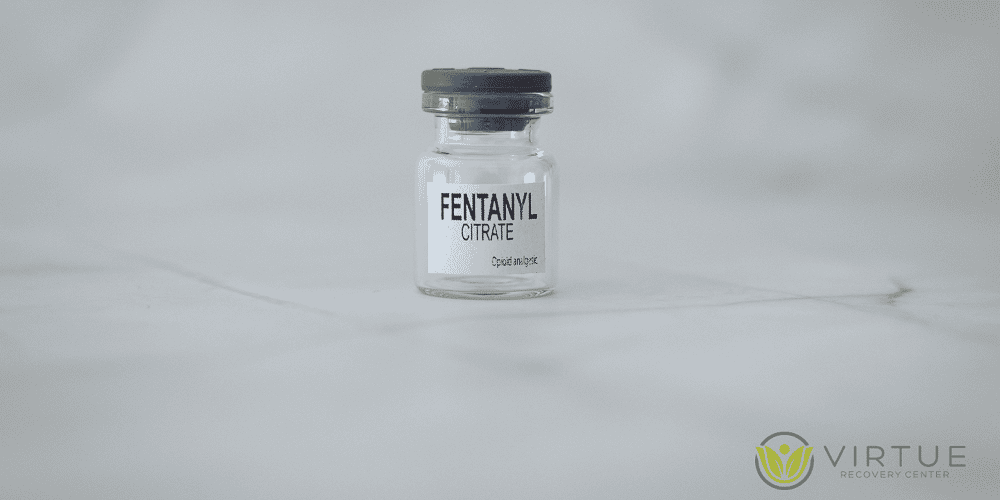Key Takeaways
-
Even after being sober for a while, fentanyl relapse is common and can be deadly.
-
For safety and recovery, it is often necessary to go back to an opioid treatment facility.
-
Intensive outpatient care and group therapy are examples of structured, ongoing support programs that provide continuing support.
-
Rehab must also deal with underlying problems like bipolar disorder.
-
To stay sober for a long time, you need to know the risks of fentanyl.
Introduction
You’re not the only one who has relapsed on fentanyl, and you can get help. A lot of people who finish rehab end up back on this potent opioid. But a relapse doesn’t mean you failed; it just means you might need a different approach. Joining an opioid treatment Chandler program can give you the help, medical care, and responsibility you need to start over on your path to recovery. Let’s look at how therapies, Fentanyl addiction rehab, and even an intensive outpatient program can help people who have relapsed.Why Do People Often Go Back To Fentanyl?
Fentanyl is 50 to 100 times stronger than morphine. A person in recovery may go back to using drugs because of:-
Not enough aftercare
-
Mental health problems that haven’t been treated
-
Social cues
-
Physical cravings because of addiction
What Should You Do Right After You Relapse?
The first thing to do is not to hide the relapse. Getting medical help right away can lower the risk of overdose and other problems. A professional rehab program for opioid and opiate addiction will:-
Take another look at your recovery plan.
-
Address the underlying cause of the relapse.
-
Provide safe detox or stabilization.
-
If it’s right, give medication-assisted treatment (MAT)
How Can An Intensive Outpatient Program Be Helpful?
An intensive outpatient program (IOP) is a structured but flexible program to help someone who has relapsed. You live at home but go to therapy sessions several times a week, which is different from inpatient care. Some benefits are:-
Daily check-ins to keep people accountable
-
Therapy to help you deal with cravings and triggers
-
Support from a group
-
Getting to the MAT and urine tests

Why Is It Important To Get Dual Diagnosis Treatment After A Relapse?
Many people who use fentanyl also have mental health problems that have not been diagnosed or treated. If you have bipolar disorder, trauma, or depression, you need to deal with those problems to stay sober. Dual diagnosis programs combine:-
Bipolar disorder treatment with medication management
-
Cognitive behavioral therapy (CBT)
-
Strategies for mindfulness and controlling your emotions
-
Family support and education
What Does Group Therapy Do After Someone Has A Fentanyl Relapse?
Group therapy treatment programs offer individuals a sense of community and shared experience, which is highly important. Many people who are recovering from fentanyl relapse feel very ashamed or alone. Group work is helpful:-
Make the relapse experience normal
-
Talk about ways to deal with cravings
-
Rebuild trust and a sense of connection
-
Give structure and accountability
What Makes Fentanyl So Dangerous After Detox?
 Your tolerance to opioids goes down after detox or rehab. If you go back to a dose you used to take, your body might not be able to handle it, which could lead to an overdose or death. That’s why it’s essential for both recovering users and their families to know what fentanyl is, a dangerous opioid.
The CDC says that fentanyl is now often mixed with other drugs like cocaine, heroin, or even fake pills. This makes it hard to find and easy to overdose on.
This is where opioid treatment Chandler programs come in to teach you and keep you safe using harm reduction techniques, medication, and psychoeducation.
Your tolerance to opioids goes down after detox or rehab. If you go back to a dose you used to take, your body might not be able to handle it, which could lead to an overdose or death. That’s why it’s essential for both recovering users and their families to know what fentanyl is, a dangerous opioid.
The CDC says that fentanyl is now often mixed with other drugs like cocaine, heroin, or even fake pills. This makes it hard to find and easy to overdose on.
This is where opioid treatment Chandler programs come in to teach you and keep you safe using harm reduction techniques, medication, and psychoeducation.
How Do You Know You’re Ready To Go Back To Treatment?
Being ready doesn’t mean being perfect. If you:-
Feel scared or ashamed after using
-
Have mood swings or cravings
-
Have thoughts about quitting again
-
Want help and to be held accountable
Conclusion
If you relapse on fentanyl, it may feel like your recovery is over, but in reality, it’s often the start of a deeper, more personal healing journey. You are not weak if you relapse. It just means that your current plan isn’t meeting your needs in some way. That’s why going back to a qualified opioid treatment center can make a big difference. Our evidence-based Opioid and Opiate addiction rehab program at Virtue Recovery Chandler can help you get rid of fentanyl for good. We offer trauma-informed care, dual diagnosis treatment, and programs such as group therapy and intensive outpatient support to help you regain your stability. Call our supporting team today at 866-338-5779 and take control of your future.FAQs
Is it common for people to relapse after detoxing from fentanyl?
Yes, relapse is common because fentanyl is so potent, and the brain wants it so badly.Can I go back to the same treatment center if I relapse?
Most treatment centers are happy to see clients who have been there before and have new recovery plans.Do I need to start detoxing again?
Maybe. A supervised detox is safe if you recently used fentanyl.Does MAT help after a fentanyl relapse?
Yes. Drugs like Suboxone and Methadone can help people feel more stable and less hungry.Can group therapy help me?
Of course. Many people find strength, accountability, and emotional healing in groups.Can Group Therapy Programs Help Prevent Relapse in Fentanyl Treatment?
Can group therapy programs help prevent relapse in fentanyl treatment? Many experts believe that exploring group therapy for mental health fosters a supportive environment where individuals share experiences and coping strategies. This connection can reduce feelings of isolation and provide essential encouragement, ultimately enhancing the chances of maintaining long-term recovery.
Resources & Citations
-
National Institute on Drug Abuse. “Fentanyl DrugFacts.” NIDA, 2023, https://nida.nih.gov/publications/drugfacts/fentanyl
-
Substance Abuse and Mental Health Services Administration. “Medication-Assisted Treatment (MAT).” SAMHSA, 2023, https://www.samhsa.gov/medication-assisted-treatment
-
“Fentanyl Facts.” Stop Overdose, Centers for Disease Control and Prevention, 20 Sept. 2023, https://www.cdc.gov/stop-overdose/caring/fentanyl-facts.html








